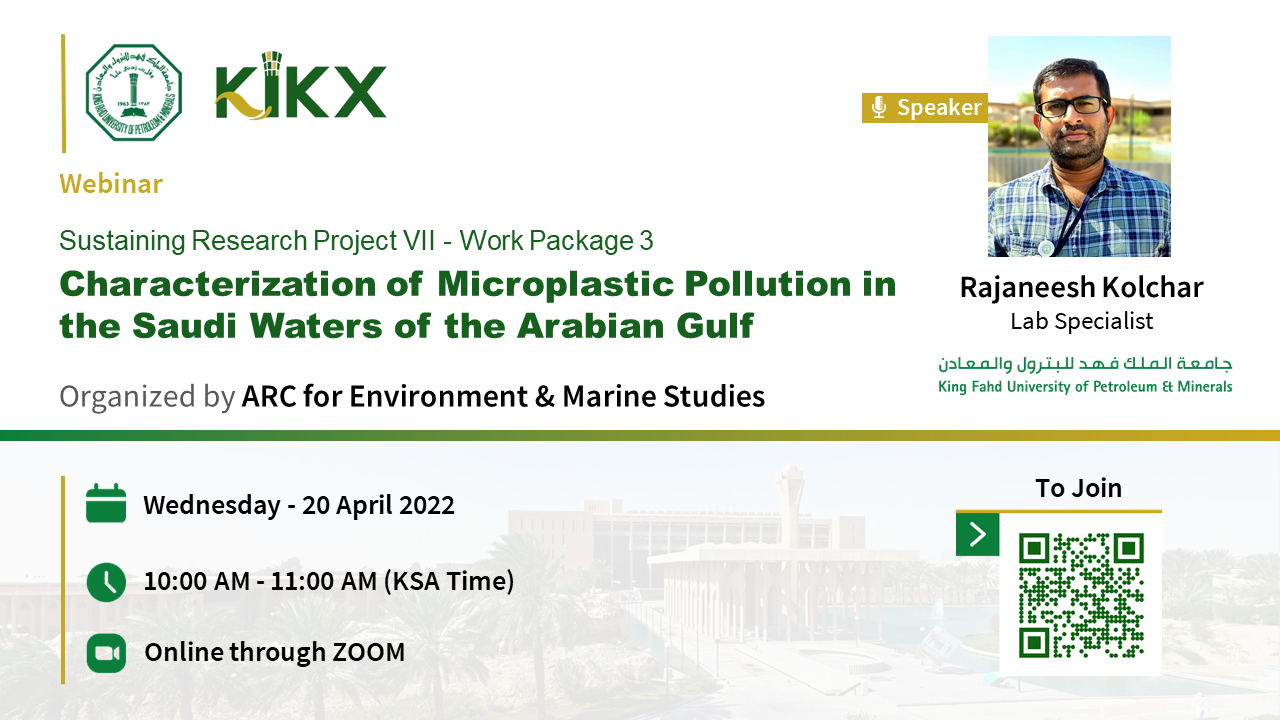Characterization of Microplastic Pollution in the Saudi Waters of the Arabian Gulf
Organized by: ARC for Environment and Marine Studies
In work package 3 of the Sustaining Research Project-Phase VII, which is a collaboration between KFUPM and Saudi Aramco, microplastic (MPs) pollution will be investigated in the Saudi waters of the Arabian Gulf. The ubiquitous presence of MPs as ‘emerging contaminants’ in the ecosystem has become a matter of global environmental issue due to its potential threat to marine life and ecology. The threats posed by MPs pave the way for increase attention among researchers, government organizations, and public community. MPs are polymers having particle sizes less than 5 mm. Based on their origin, they can be classified as primary (i.e. deliberately manufactured particles in personal care products such as fibers, pellets, films, and spheres) and secondary MPs ( i.e. produced from gradual degradation/fragmentation of larger plastic particles already present in the environment). MPs tend to accumulate on the surface of the water column, but they are also transported vertically to the bottom through various mechanisms. The presence of these non-biodegradable MPs at a micro-level can cause severe harm to many ecosystem functional groups, including commercially important fishes, mussels, and crabs. Since humans, directly or indirectly consume most of these marine organisms, the chance of human exposure to MPs is high. Studies on MPs have recently received attention in the Arabian Gulf region. However, research on MPs in Saudi Arabia is limited, despite the evident effects of MP pollution in the marine environment. In this work package, MPs presence in seawater and sediments in the Saudi waters in the Gulf will be characterized to identify their hotspots. Their presence in biota samples as well as in common salts will also be investigated. In addition to the original tasks in this work package, efforts will be taken to study the behavior and transport of MPs under laboratory simulations, model their transport in the marine environment, and examine the interaction of MPs with pollutants. This seminar will present the project strategies, scope of work, sampling and methodological plan of the work package.
